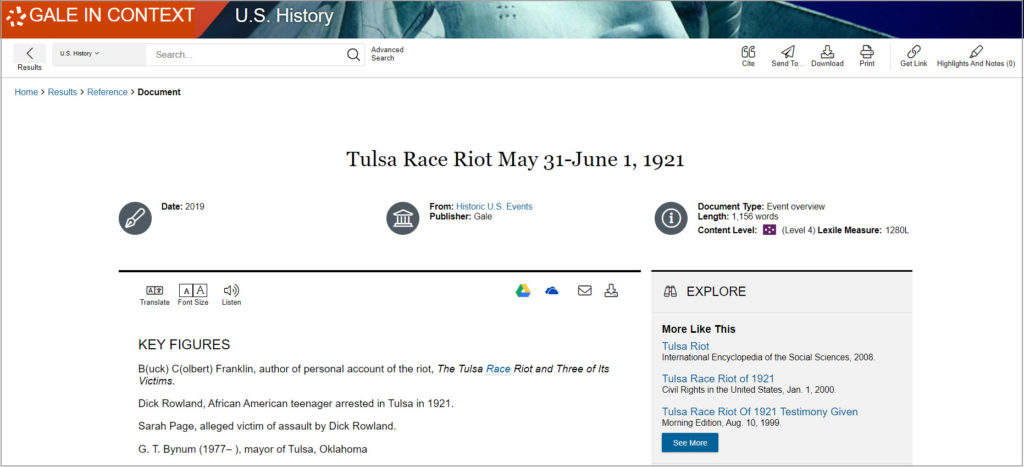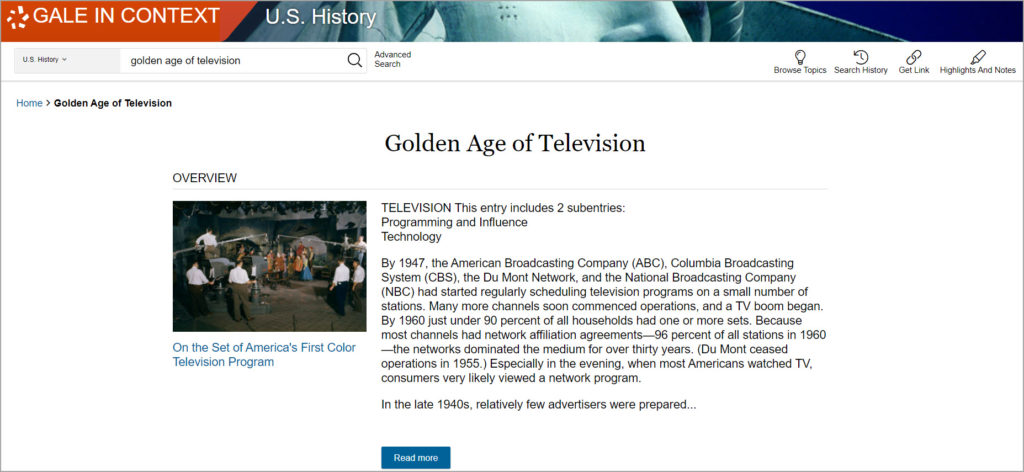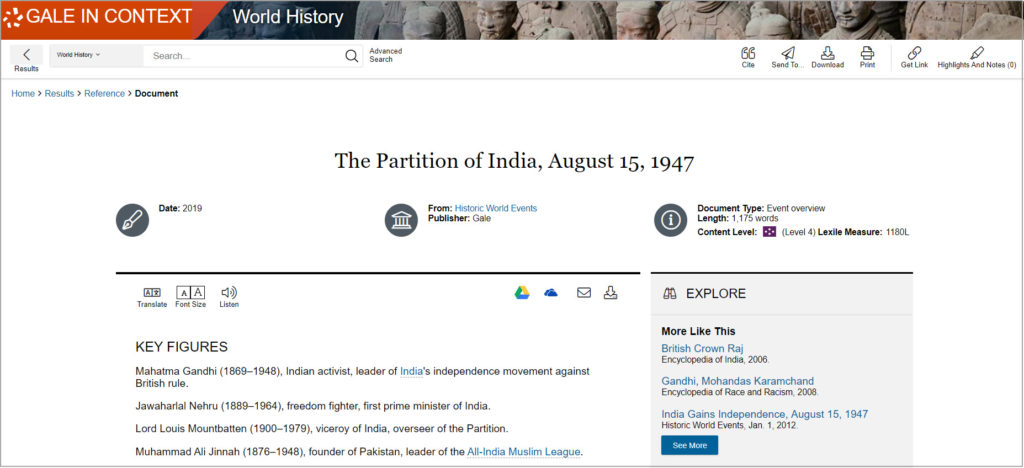| By Mark Mikula |
Media critic and commentator David Bianculli coined the term “Platinum Age of Television” to define the current broadcast landscape, beginning in the late 1990s, to distinguish it from the “Golden Age of Television” that produced such iconic series as I Love Lucy, Your Show of Shows, and The Honeymooners. In the contemporary Platinum Age, numerous series have either focused wholly on historical subjects or used historical events as a backdrop for story lines involving their characters.
AMC’s Mad Men, depicting the culture of Madison Avenue’s advertising industry in New York City in the 1960s; PBS’s Downton Abbey, showing customs, behaviors, and interactions between different classes in early-20th century England; and Netflix’s The Crown, focusing on the long reign of Queen Elizabeth II, all use history as the framework on which their characters interact. In series that rely heavily on a particular period, specific events and the social and cultural contexts of the times influence the behaviors of the people—both fictional and actual—being portrayed.
Some critically acclaimed series with a focus on history (The Americans, The West Wing, and The Man in the High Castle) attempt to provide a wholly fictional world but speculate on themes and conflicts with a strong historical connection. Other series strive for a closer adherence to the known historical details. HBO has demonstrated a commitment to this latter approach in several series. Their shows Rome (set in ancient Rome), Band of Brothers (a World War II drama), and Chernobyl (about the Ukrainian nuclear disaster and attempts to cover it up) have all earned praise from various critics for different aspects of the storytelling that honor what is believed to be true about the periods that they depict.
A handful of recent episodes of Platinum Age television series have gone beyond oft-covered historic events to delve into parts of history that have typically received little coverage in the classroom. An episode of the BBC’s Doctor Who had the time-traveling title character witnessing the partitioning of India and the formation of Pakistan in an episode entitled “Demons of the Punjab,” set in 1947.
On Sunday, October 20, 2019, HBO debuted the Watchmen series, using the violent Tulsa race riot of 1921 as the setting for its first scenes. The Watchmen are characters from the Marvel Comics Universe who get involved in world events along an alternate timeline. The true event featured in the show originated after a young black man, Dick Rowland, entered an elevator being operated by a female employee, Sarah Page, during the summer of 1921. It is believed that the black man tripped over the elevator operator, but the incident resulted in an arrest of Rowland and escalated into allegations of sexual assault that were reported in the Tulsa newspaper the next day. The response to the allegations—from which Rowland was ultimately cleared—were brutal and disproportionate. White men murdered African Americans and destroyed many buildings in Greenwood, a prosperous African American neighborhood dubbed “Black Wall Street” for its concentration of wealth. Airplanes were employed to attack Greenwood from above. While official reports totaled the number of black casualties at 37, researchers speculate that as many as 300 people may have been killed in the riots. Attempts to acquire reparations for the community in the early 2000s failed.
After the premiere of Watchmen, the hashtag #blackwallstreet trended on Twitter, and many social media users participated in discussions about the event. The episode and the ensuing dialogue introduced the Tulsa race riot to many on the internet, especially white people.
Gale In Context: U.S. History and Gale In Context: World History endeavor to bring attention to these lesser-known events in history with a focus on accurate and objective coverage. You can find essays on the Tulsa race riot, the partition of India, the Golden Age of Television, and many other events and topics in the databases.
For an overview of the events in Tulsa, see “Tulsa Race Riot” from Historic U.S. Events in Gale In Context: U.S. History:

For an overview of the Golden Age of Television in the 1950s, see the “Golden Age of Television” portal in Gale In Context: U.S. History:

For an overview of the partition of India, see “The Partition of India, August 15, 1947,” from Historic World Events in Gale In Context: World History:

 About the Author
About the Author
Mark Mikula is a senior content developer for several of Gale’s history databases. In his travels, he has attended numerous film and theater festivals; the American Crossword Puzzle Tournament in Stamford, Connecticut; and the oldest consecutively held Fourth of July celebration in Bristol, Rhode Island.


